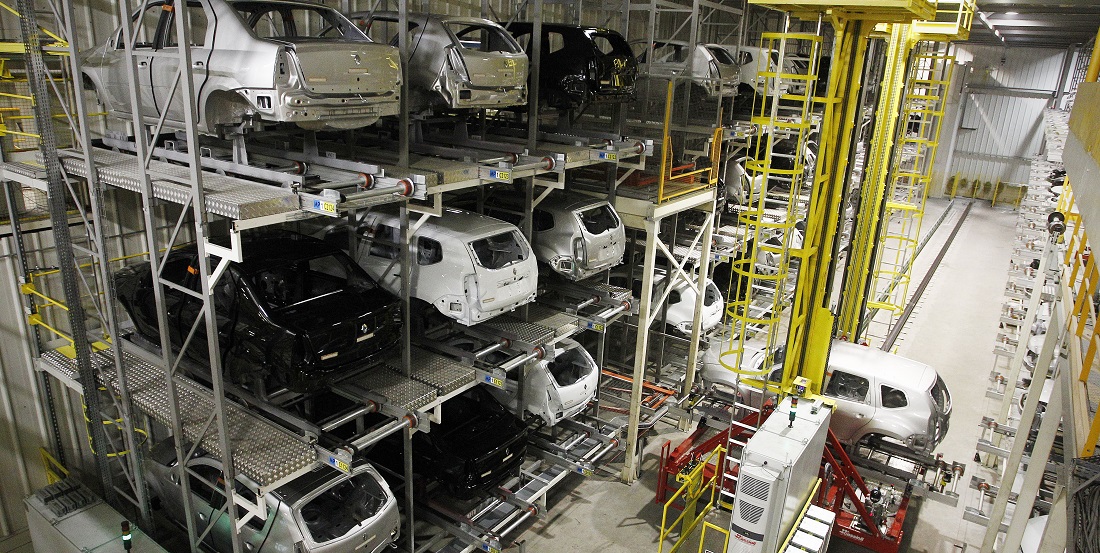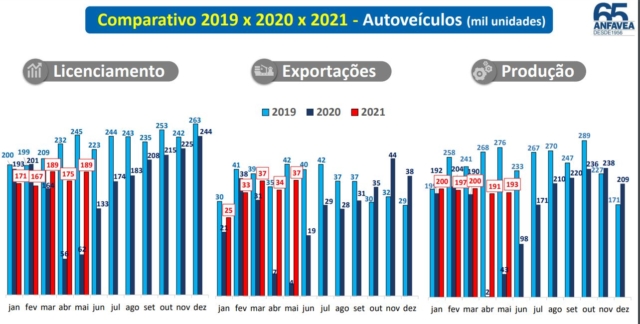
Vehicle production returns to pre-pandemic levels due to lack of semiconductors
Jun, 08, 2021 Posted by Ruth HollardWeek 202125
Vehicle production in May reached 192,800 units, just 1% higher than in April, according to the latest survey by ANFAVEA, the national association of automotive vehicle manufacturers. Since January, the production level has been between 190,000 and 200,000, which reveals a kind of “technical ceiling” caused not by the lack of demand, but by the global lack of semiconductors.
“This problem is responsible for the temporary stoppages of some of our factories, some for short periods, others for longer and won’t be resolved until the beginning of 2022”, explains President Luiz Carlos Moraes, noting that this issue is affecting several industrial sectors, in particular the automotive sector, since a single vehicle can have up to 600 semiconductors in its electronic systems for motorization, transmission, safety, comfort, entertainment, etc.
Although production is slowed, 188,700 units were licensed in May, representing an increase of 7.7% over the previous month, with emphasis on the 11,500 trucks, the best result in the segment since December 2014. Exports were also high, with 37,000 vehicles shipped, 9.1% more than in April. In the accumulated result for the first five months, vehicle licenses reached 891,700 and exports reached 166,600.
Source: ANFAVEA
Industrial policies and a vision towards the future
In Luiz Carlos Moraes’ opinion, the semiconductor crisis, with production almost entirely concentrated in Asia, reveals a challenge that needs to be faced by Brazil as a nation with a vision of the future. “The United States and European countries have picked up the warning signal and are already developing industrial policies in order to locally produce these electronic components, which are the basis of the entire technological revolution of 5G, internet of things, automation, and others already in progress”, says the President of ANFAVEA.
“The automotive sector and other industries increasingly depend on these inputs to take a step further in technological terms, attracting investments in Research and Development to Brazil and subsequently generating technical and academic knowledge and extremely high-quality jobs. We are already late, which requires urgency and a great vision of the future on the part of our leaders”, concludes Moraes.
-
Meat
Oct, 20, 2021
0
Brazil to suspend beef production for export to China
-
Trade Regulations
Nov, 05, 2024
0
Brazil Opens 34 New Agricultural Markets in October, Boosting Export Growth
-
Nov, 30, 2022
0
Port of Recife sends ethyl alcohol to Africa in spot shipment
-
Ports and Terminals
Apr, 02, 2024
0
Brazil’s Port Sector: ANTAQ Reveals Details of Upcoming Terminal Leasing Plans




